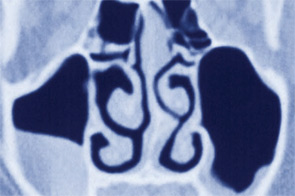Otolaryngologists understand that even their most loyal patients, with finances ravaged by the lingering economic recession, may postpone or forego endoscopic sinus surgery, tonsillectomy or a chemical facial peel in favor of paying the mortgage.


Otolaryngologists understand that even their most loyal patients, with finances ravaged by the lingering economic recession, may postpone or forego endoscopic sinus surgery, tonsillectomy or a chemical facial peel in favor of paying the mortgage.

Donald Palmisano, Esq., MD, believes the key to curing the health care crisis in the U.S. involves respecting the sacredness of the doctor-patient relationship and capping the size of malpractice awards.

Electronic medical records (EMRs) are costly and require significant staff time to implement but have the potential to bring huge benefits to patients and doctors alike, said speakers at the Triological Society’s Combined Sections Meeting held here Feb. 4-7.

The title of this session at the Triological Society’s Combined Sections Meeting held here Feb. 4-7 asked a tough question: Why are otolaryngologists still talking about pediatric tonsillitis, otitis and sinusitis?


For better or worse, medical practices are experiencing change. While many physicians are looking to expand their practice, other physicians are seeking a divorce from their current group.

The genome project sequenced all three billion base pairs of human DNA, revealing the instructions cells need to build all the proteins in the body. But that was just a warm-up, according to Thomas C. Spelsberg, PhD, of the Mayo Clinic in Rochester, Minn.

Diana C. Ponsky, MD, assistant professor of otolaryngology-facial plastic and reconstructive surgery at Case Medical Center in Cleveland, Ohio, went to medical school wanting to be a pediatrician. She happened upon otolaryngology “by accident, by scrubbing into a very fascinating cancer case. I was hooked,” she now recalls.
It’s a fact: An increasing number of American women are entering medicine. In the U.S. today, half of matriculating medical students, and 28 percent of all practicing physicians, are women.
In the more than ten years that Paul Levine, MD, FACS, has served as chair of otolaryngology and head and neck surgery at the University of Virginia in Charlottesville, he has heard his share of complaints about high-powered surgeons who are difficult to work with.